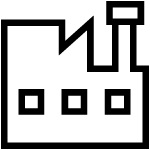
A new report by PwC and SustainabilityWorks titled ‘The Irish Climate Tech Opportunity 2023’ showcases some of Ireland’s innovative climate tech entrepreneurs whose solutions will help make net zero a reality.
However, the challenge is a daunting one with just seven years to halve our greenhouse gas emissions and until 2050 to reach net zero.
What is climate tech?
Climate tech is defined as technologies that are explicitly focused on reducing greenhouse gas emissions or addressing the impacts of climate change. Its applications can be grouped into three broad, sector-agnostic groups:
Those that directly mitigate or remove emissions.
Those that help us adapt to the impacts of climate change.
Those that enhance our understanding of the climate.

Trends
In speaking to 36 of Ireland’s leading climate tech innovators and entrepreneurs, certain sectoral trends became apparent:
It is abundantly clear that the rate of decarbonisation worldwide must accelerate if countries are to have a fighting chance of meeting ambitious net zero targets. In this report, we are delighted to introduce you to 36 innovative Irish businesses making progress in the climate tech space to help us reach our net zero destination.













Menu